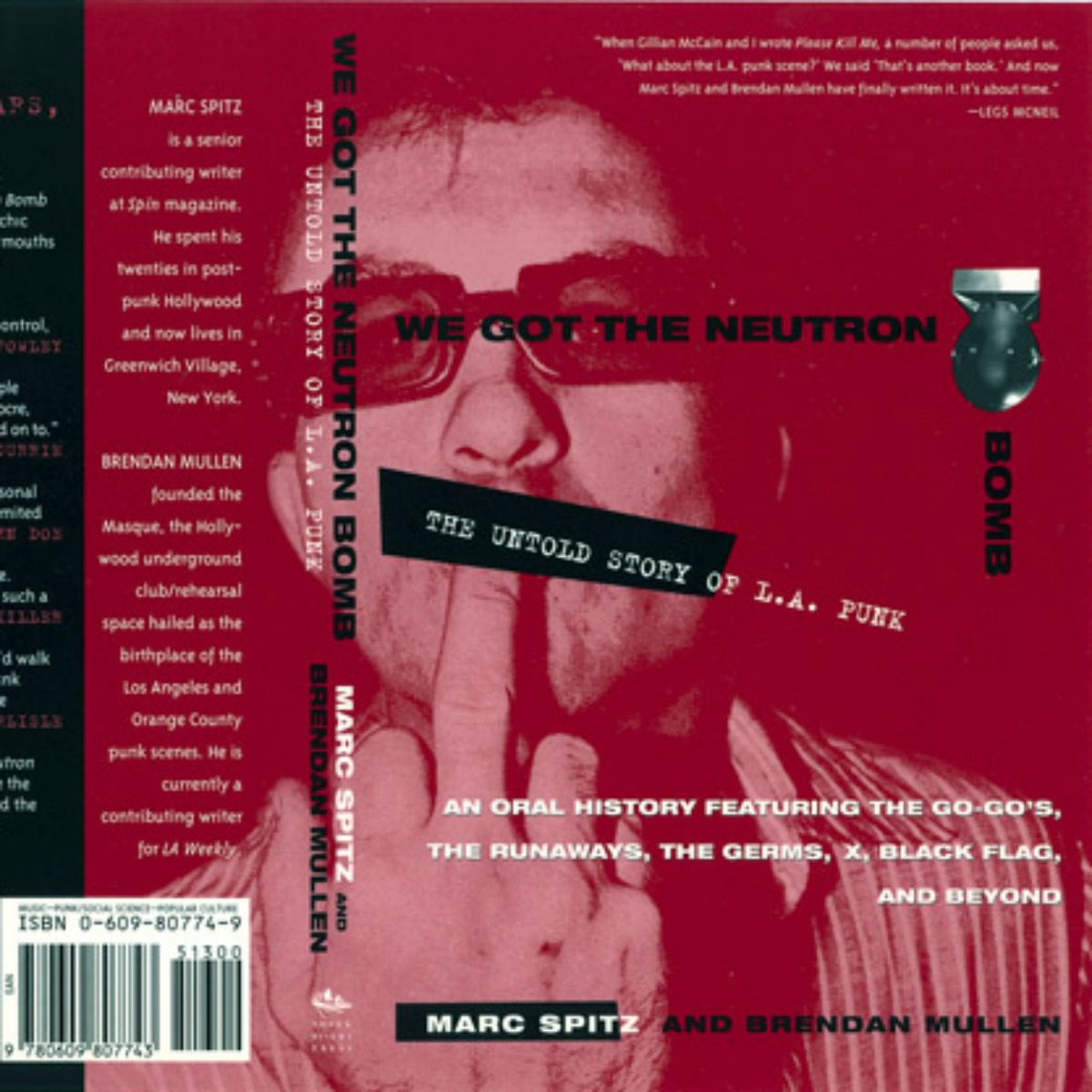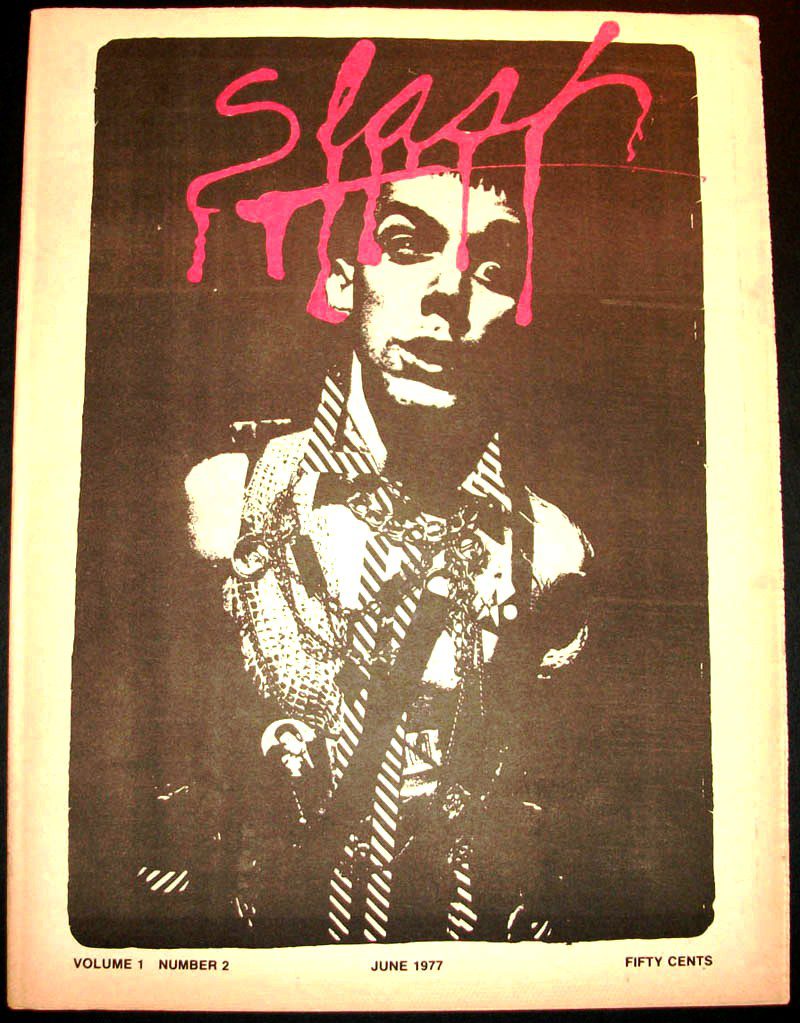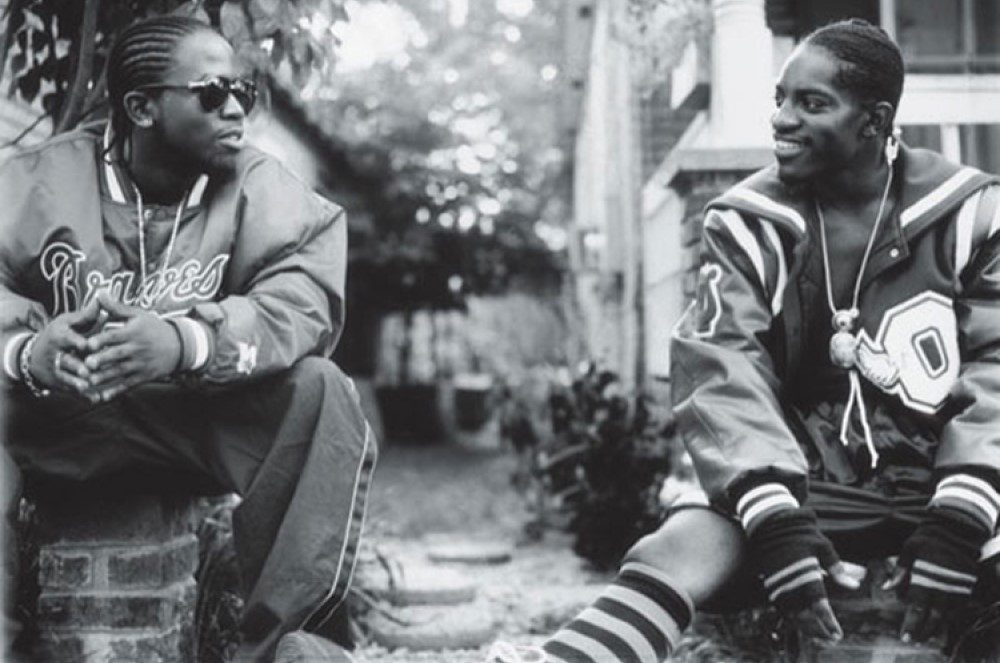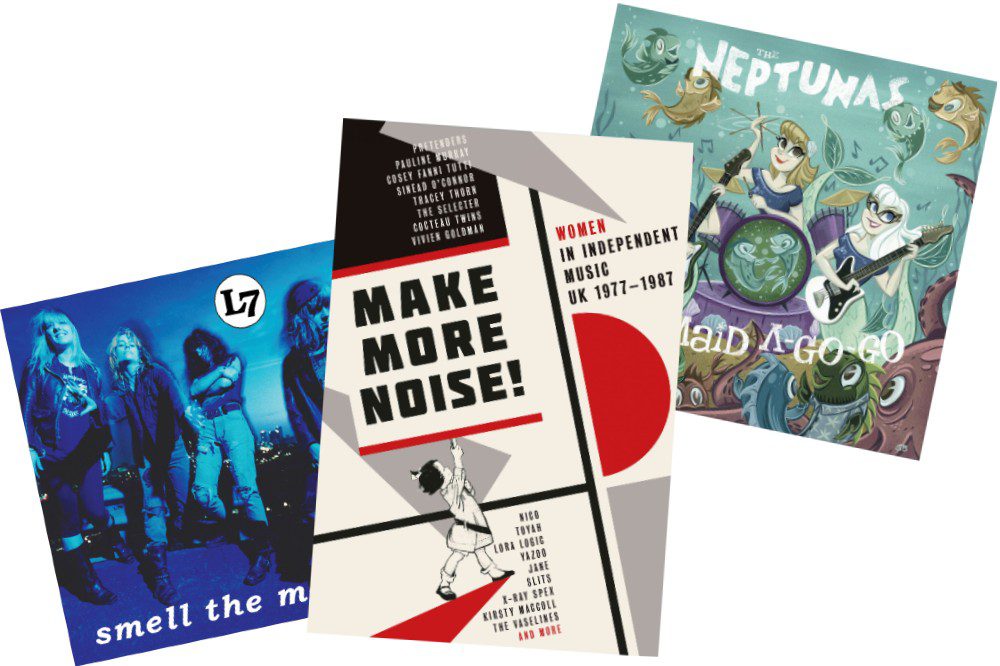ONLY NOISE: Dropping The Neutron Bomb

Did my dad know that he might ruin me with a book? Of course not. What could a book possibly do? It wasn’t Story of the Eye, or Tropic of Cancer or even The Outsiders. It was non-fiction. Educational. All he knew was that his 12-year-old daughter was beginning to dress funny and gravitate towards a kind of music he couldn’t relate to. So, he did what any supportive parent would do: he bought me a book on the subject. But this was no mere book.
We Got the Neutron Bomb: The Untold Story of L.A. Punk was an oral history of punk’s first wave in Southern California. Much like its New York predecessor Please Kill Me, Neutron Bomb compiles hundreds of interviews with musicians, tastemakers, groupies and promoters into a sensational narrative. Edited by acclaimed music journalist Marc Spitz and former Masque owner Brendan Mullen, this was the book that changed everything for me – my answer to The Catcher in the Rye. It was a bomb indeed; reconfiguring everything I had ever known about music, writing, and debauchery – which as it turns out, all go hand in hand.
Informative the book was; innocent it was not. What my dad had unknowingly placed in my crimeless little hands was an instruction manual on bad behavior. He might as well have handed me the keys to his liquor cabinet. The pages were ripe with forbidden fruit, including, but not limited to the offensive quotes of The Runaways’ manager Kim Fowley (the “C” word abounds), anecdotes about shooting up with gutter water, and spreads of full frontal nudity. Full frontal MALE nudity!
It was a great time to be in the sixth grade. While everyone was speeding through the second Harry Potter tome, I was reading about people on speed, cutting themselves with broken bottles, smearing their malnourished bodies with peanut butter, and having all the unprotected sex. And of course, there was the music, the wild disruptor that was the birth of L.A. punk.
I am reminded of these growing pains with the recent publishing of Slash: A Punk Magazine From Los Angeles: 1977-80. Slash, which first came to my attention while reading We Got the Neutron Bomb, seemed to be the West Coast comrade of Punk Magazine and Search and Destroy. It was a newsprint rag of epic proportions when it came to chronicling the dizzying L.A. garage scene from its inception to its demise. The editorial backbone of the zine was as colorful as the bands they immortalized. At the core of Slash were founders Steve Samiof and Melanie Nissen, who recognized the importance of documenting the careers of the commercially challenged. Where A&R reps may have heard mayhem, the crew at Slash magazine heard the last cries of revolution. Or perhaps screams.
Slash championed the “dangerous” sound; bands like The Screamers, The Germs, Catholic Discipline, The Bags, X, all of whom cropped up in Neutron Bomb alongside countless others. But the magazine wasn’t only throwing roses. If Samiof and Nissen were the core of the paper, then writer/editor Claude Bessy, a.k.a. “Kickboy Face” was its blackened little heart. I remember Kickboy’s quotes in Neutron Bomb being true gems, and his belligerent snarl wasn’t any softer in the pages of Slash. In an early editorial from ’77, Kickboy lays into the giants of status quo rock:
“May the punks set this rat-infested industry on fire. It sure could use a little brightness! So there will be no objective reviewing in these pages, and definitely no unnecessary dwelling upon the bastards who’ve been boring the living shit out of us for years with their concept albums, their cosmic discoveries and their pseudo-philosophical inanities.” “
…let them remember the old days when they’d rather die than be seen with socialite creeps and being heard talking trash and then let them shit in their pants with envy. As The Clash say, NO ELVIS, BEATLES OR ROLLING STONES IN 1977!”
Kickboy Face was to Slash what Lester Bangs was to Creem, but probably more hated. He liked it that way. On the anthology’s cover is a small beckon for letters to the editor: “Write Kickboy! He wants you to respond. (He thrives on abuse).”
Abuse was something so pervasive in the scene, particularly with one of its most disturbingly fascinating bands: The Germs. The Germs, along with their ill-fated lead “singer” Darby Crash, were the nucleus of both Neutron Bomb and a second oral history by Mullen entitled Lexicon Devil: The Fast Times and Short Life of Darby Crash and the Germs.
After plowing through the first volume, Lexicon Devil was wrapped and waiting under the Christmas tree, a setting so innocuous it made the book’s hedonistic contents all the more comical. This collection focused on the self-destructive tendencies of Darby Crash, nee Jan Paul Beahm, who died of an intentional overdose at twenty-two. While this fate was not rare in the punk scene East or West, The Germs left behind a concise body of work that was far from generic. They sounded only like themselves, and as with most explosive art, weren’t fully recognized until long after their disbandment.
The twisted history of The Germs became such a fixation that years later I would agree to getting a Germs Burn: an idiotic and unhygienic branding created when a burn-bearing pal sears an entire cigarette into your left wrist. Start to finish. It was one of the many grotesque rituals championed by Circle One, The Germs’ own little groupie cult. At the time it seemed like some honor had been bestowed upon me, but more than anything it hurt like hell. I hid it from my parents for years, and I’m lucky it didn’t become gangrenous. No one even notices it anyway. Zero punk points awarded.
Throughout Neutron Bomb, Lexicon Devil and Slash, there was continual mention of a film in which all of these characters came to life: The Decline of Western Civilization by Penelope Spheeris. At the time this film was referred to as a holy grail: out of print, impossible to find, etc. Whether or not that was true is now nebulous to me, but at the time I, of course, believed it. So imagine my thrill up on seeing a bootleg copy on the shelves at Singles Going Steady, a punk record store in Seattle. The DVD was certainly bootlegged and overpriced, but it was mine. I was about to watch the most seminal documentary in punk rock history…with my parents.
It quickly became apparent that I hadn’t been reading cute rock n’ roll stories for the past few years. If the music alone didn’t alienate my folks enough, Decline would make a point of doing so. This was 100 minutes of my idols crumbling before me. Darby Crash: too loaded to sing into the mic. Lee Ving: misogynistic and homophobic. Ron Reyes: terrible lyricist. At its best the film spends time with X, whose John Doe, Billy Zoom and Exene Cervenka are actually intelligent, coherent human beings. At its worst are suburban kids trying to justify their swastika armbands.
Not everyone was pleased with Penelope Spheeris for this representation. Others didn’t give a fuck. But as I sat in between my parents, recoiling at a scene in which Darby Crash and a woman named Michelle laugh about finding a dead man in her backyard (LOL!), I realized that maybe liking the music was enough. I didn’t need idols or ideals to know a good record. As Kickboy Face once wrote:
“But seriously now, stop fuckin’ worrying silly about lost ideals and forgotten causes. You’re still here, aren’t you?”





